Monty Don reveals his top birdhouse ideas and expert tips
The celebrity gardener offers foolproof tips for attracting birds to nest this spring with the right birdhouse type, position and more
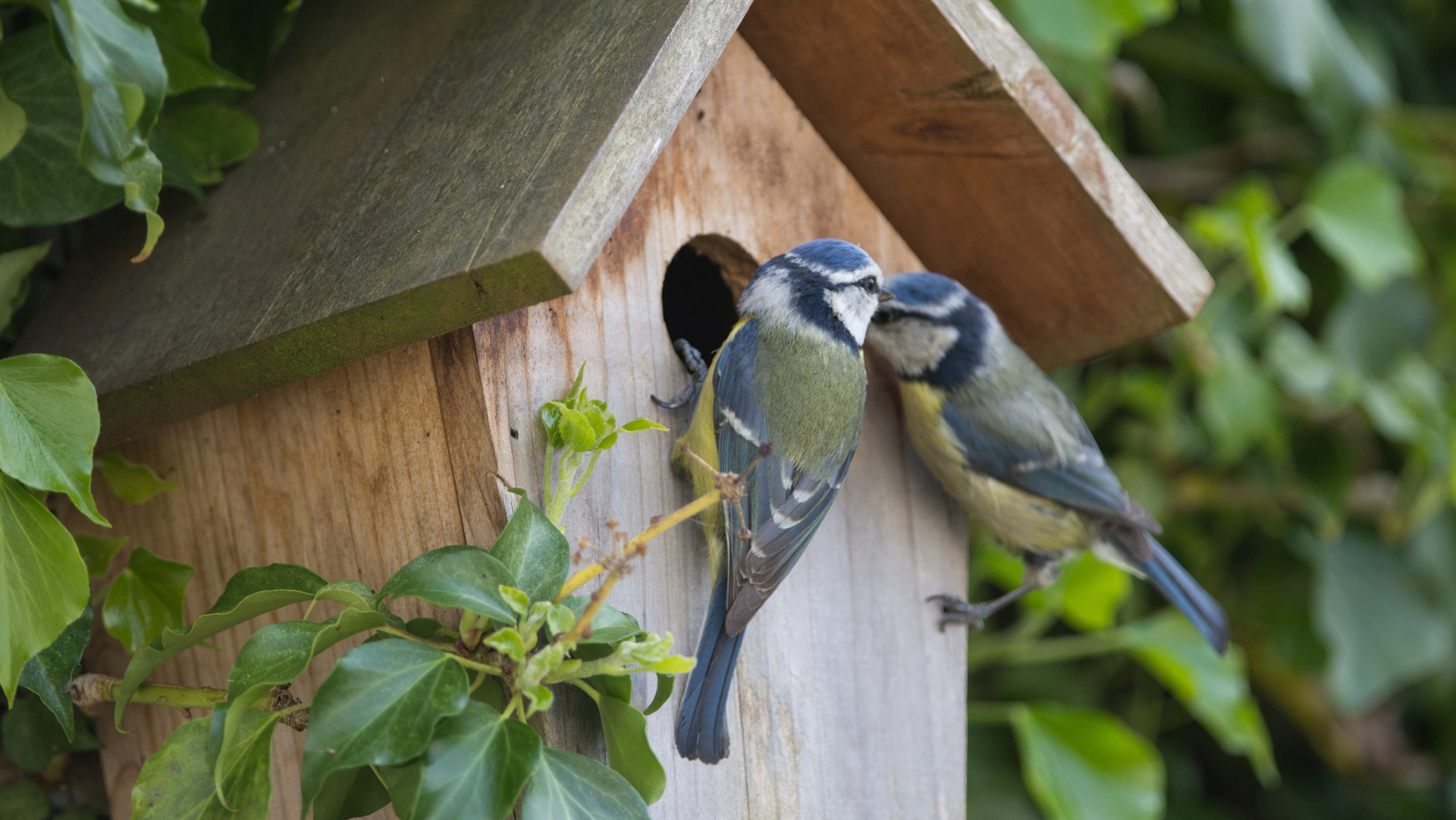
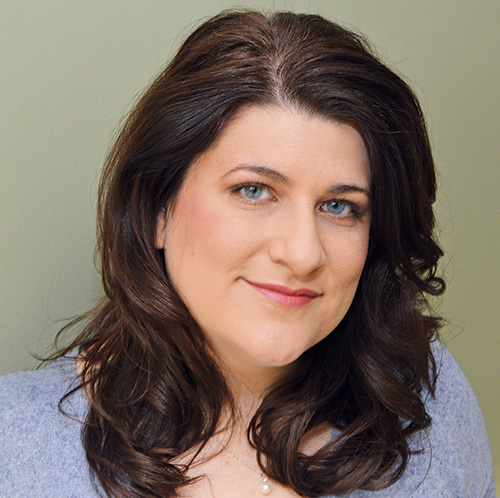
If a recent increase in birds visiting your garden has inspired you to put up a birdhouse, then follow Monty Don’s ideas and sage advice on choosing the right type and location to create a sanctuary for feathered friends.
In a video for BBC's Gardener’s World, Don admitted that while he has lots of hedges for birds to nest in at his own garden, Longmeadow in Herefordshire, many gardens ‘have no mature and suitable places for birds to nest in.’ So adding birdhouses is vital to help them thrive.
Attracting birds to the garden has multiple benefits. ‘Birds not only make the garden healthier and enrich the eco system, but they’re hugely enjoyable for the gardener,’ says Don.
See: Monty Don's bird feeding tips – keep them healthy and attract more
What attracts birds to a birdhouse?
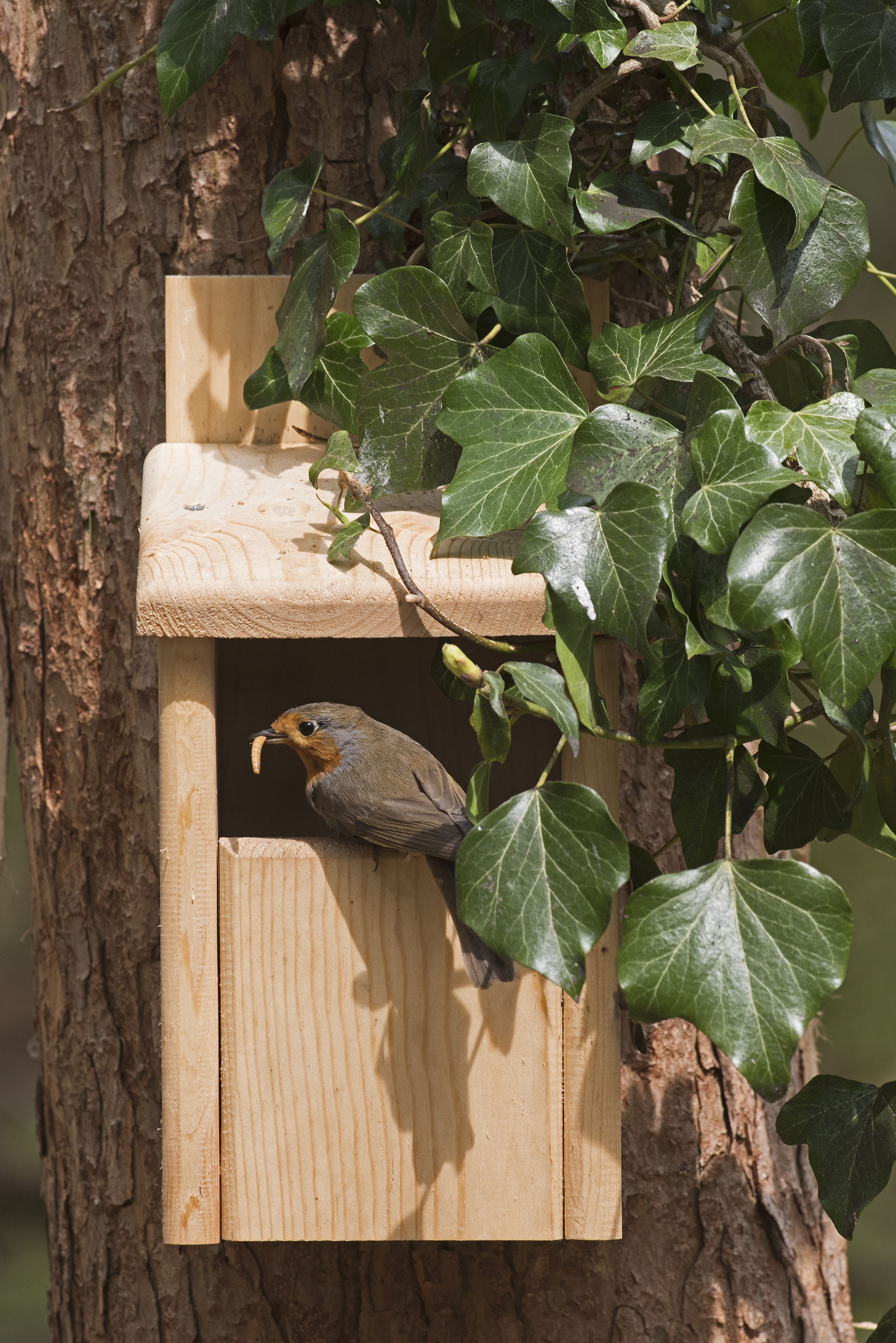
To attract birds to a birdhouse, you must choose the right type and location for the species you want to encourage.
In his video, Monty Don revealed that a box with a small circular hole is perfect for tits, which include blue tits, great tits, coal tits and marsh tits – though it's also an attractive home to tree sparrows.
‘The tit thinks that this is essentially a tree trunk with a hole in and a hollow space, and it will go in there and make its nest in the space underneath. So it can go in a relatively exposed site and it will use it.’
Sign up to the Homes & Gardens newsletter
Design expertise in your inbox – from inspiring decorating ideas and beautiful celebrity homes to practical gardening advice and shopping round-ups.
However, Don warns that tit boxes can be vulnerable to predators: ‘Woodpeckers can bore in to get at the young,’ he says. ‘So it’s a good idea if you’re putting one up to get a metal plate, and place around the hole, which acts as a protection.’
In the tutorial, Don showed the other main type of birdhouse, which has an open front, designed to attract a variety of birds including robins, wrens, wagtails and flycatchers. ‘These birds tend to nest behind the back of sheds, behind a water butt perhaps, or in the depths of a hedge,’ he says.
Another tip to help attract birds to a birdhouse is to position feeders nearby, as they are more likely to nest next to a reliable food supply.
But you will have to be patient. 'There’s no guarantee that they’ll nest this year or ever,' says Don. 'All you can do is put up a suitable home and hope that they take advantage of it.'
- See: Take a tour around Monty Don's beautiful Longmeadow garden in Herefordshire
Where should I place a birdhouse?
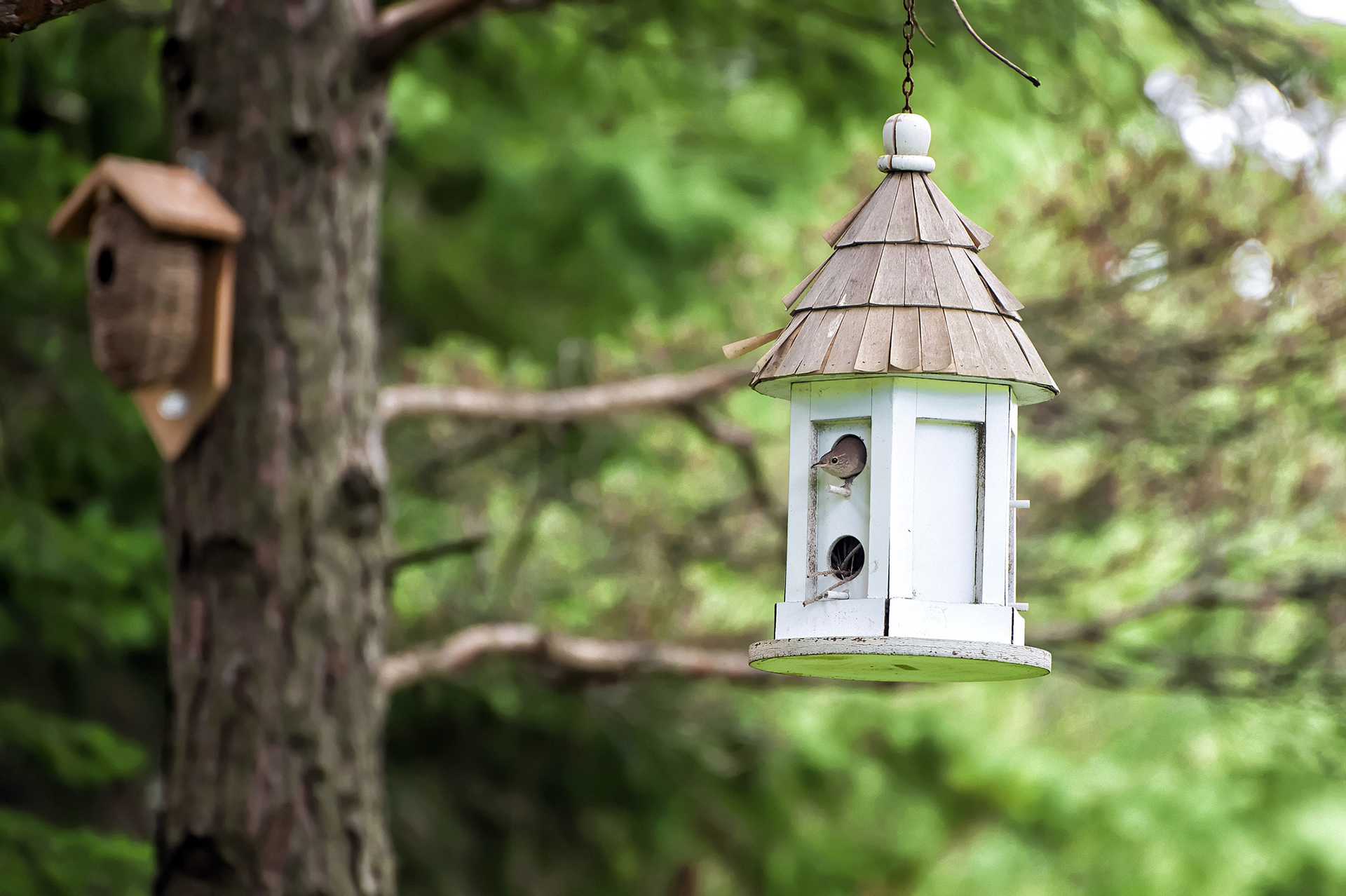
Placing a birdhouse is usually about the shelter provided around it. In his second video, Monty Don looked at ideal places to put up a birdhouse, focusing on both tit boxes with small holes, and open-fronted boxes. ‘Tits like a secluded place out of strong winds and importantly out of direct sunlight, because come a hot June or early July day it can really cook inside these boxes and get hot enough to kill the chicks,’ he says.
At Longmeadow, Don opted to fit a box up under the gable at the back of his writing hut – ‘a west-facing but very sheltered spot.’
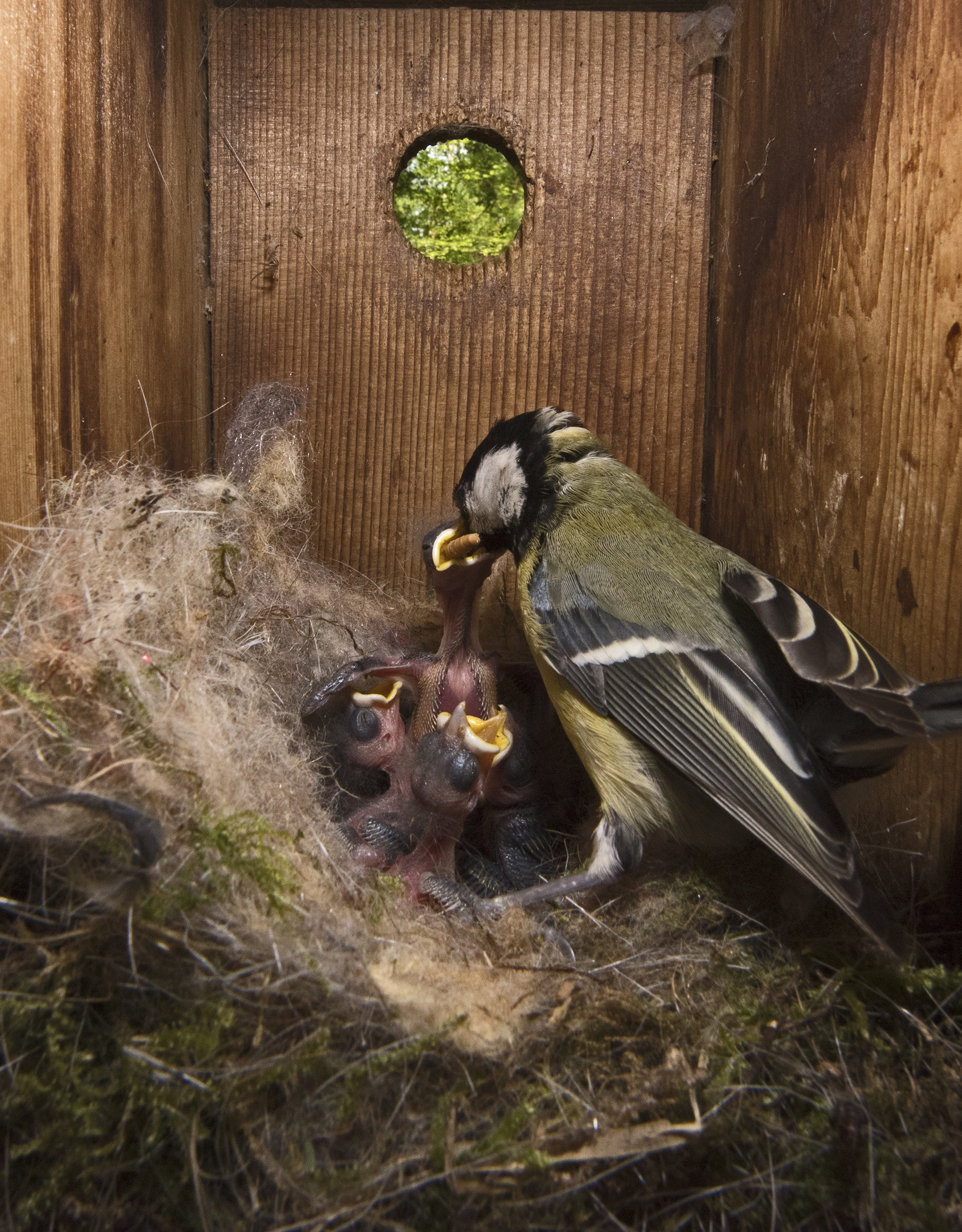
When it comes to positioning an open-fronted birdhouse, Don explains that it should be located somewhere that is enclosed and protected, but where the actual entrance to the nest is exposed.
‘Somewhere that to them feels nice and secluded, and hidden, but with good access,’ he says. ‘If you’ve got a wall with a rose growing up it or some ivy, you could put a box behind the rose. That would be ideal – not too open.’
Don did not specify a minimum height to fit a birdhouse, but Nicholas Watts MBE, owner of Vine House Farm Bird Foods, advises: ‘Generally, the nest box should be at least 1.5 metres above the ground. A tree, wall or even a high fence post can be used to secure the nest box to.’
Which direction should a birdhouse face?
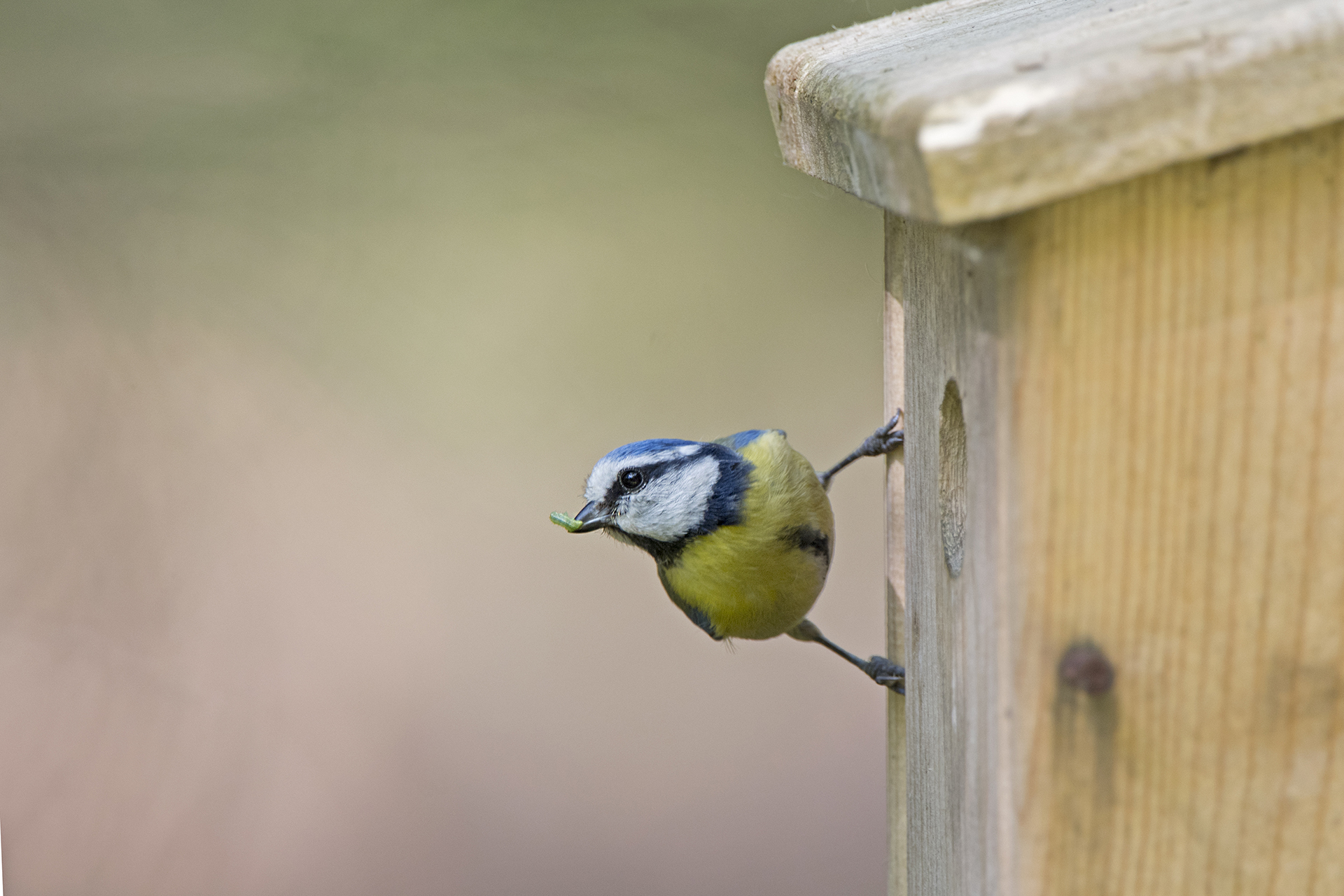
The direction a bird nesting box should face will likely be impacted by the position of buildings and trees. ‘The number one rule is never to position a nest box where it gets day-long direct sunlight,’ adds Nicholas Watts.
‘So avoid south-facing aspects, plus also exposed west-facing aspects, which are likely to get blasted by wind and rain. The ideal position is a sheltered north or north-easterly aspect.'
Do you put anything in a birdhouse?
There is no need to put anything in a birdhouse, and in fact you should empty it out after it has been vacated. ‘Once a nest box has been used, it’s essential that the old nest is removed. If it isn't, species such as blue tits and great tits won’t use it again,’ says Watts.
Cleaning out the old nest must only be done between September and January. ‘Just use a small stiff brush – no need to use water, as it’s best to keep the inside of the box as dry as possible.’
When should you put up a birdhouse?
February is the perfect time to put up a birdhouse; in fact, 14-21 February is National Nestbox Week, so it’s clearly the time to create a home for some feathered friends. The campaign advises that: 'Traditionally, boxes for tits and other small birds are put up in early spring before the new breeding season starts.’
However, Monty Don advises that ideally you should put up birdhouses by mid winter, ‘because that’s when birds start to look for suitable sites and stake their territories, and in an early spring they can be laying eggs by mid February.’
Even if you have left it too late and your birdhouse is overlooked this year, then don't worry, as it's in place in plenty of time for birds to enjoy next year.
A post shared by The Royal Family (@theroyalfamily)
A photo posted by on
And even the British Royal family have been busy giving nature a helping hand, as last week the Queen's daughter-in-law, HRH The Countess of Wessex, revealed her own birdhouse, customized in a virtual craft session organised by the RNIB.
Do birds like hanging birdhouses?
Most birds won't use hanging birdboxes because they will feel insecure in the wind. However, if you are looking to attract wrens, hanging birdhouses will be used by them. With hanging birdboxes, hang them so that the entrance is facing east, away from the direction the winds usually come.

Melanie has worked in homes and gardens media for two decades. Having previously served as Editor on Period Living magazine, and worked on Homes & Gardens, Gardening Etc, Real Homes, and Homebuilding & Renovating, she is now focusing on her passion for gardening as a Senior Editor at Gardening Know How. As a keen home grower, Melanie has experimented with pretty much every type of vegetable at some point – with mixed results. Often it is the simplest things that elude you, which may explain why she just can't seem to master zucchinis.
-
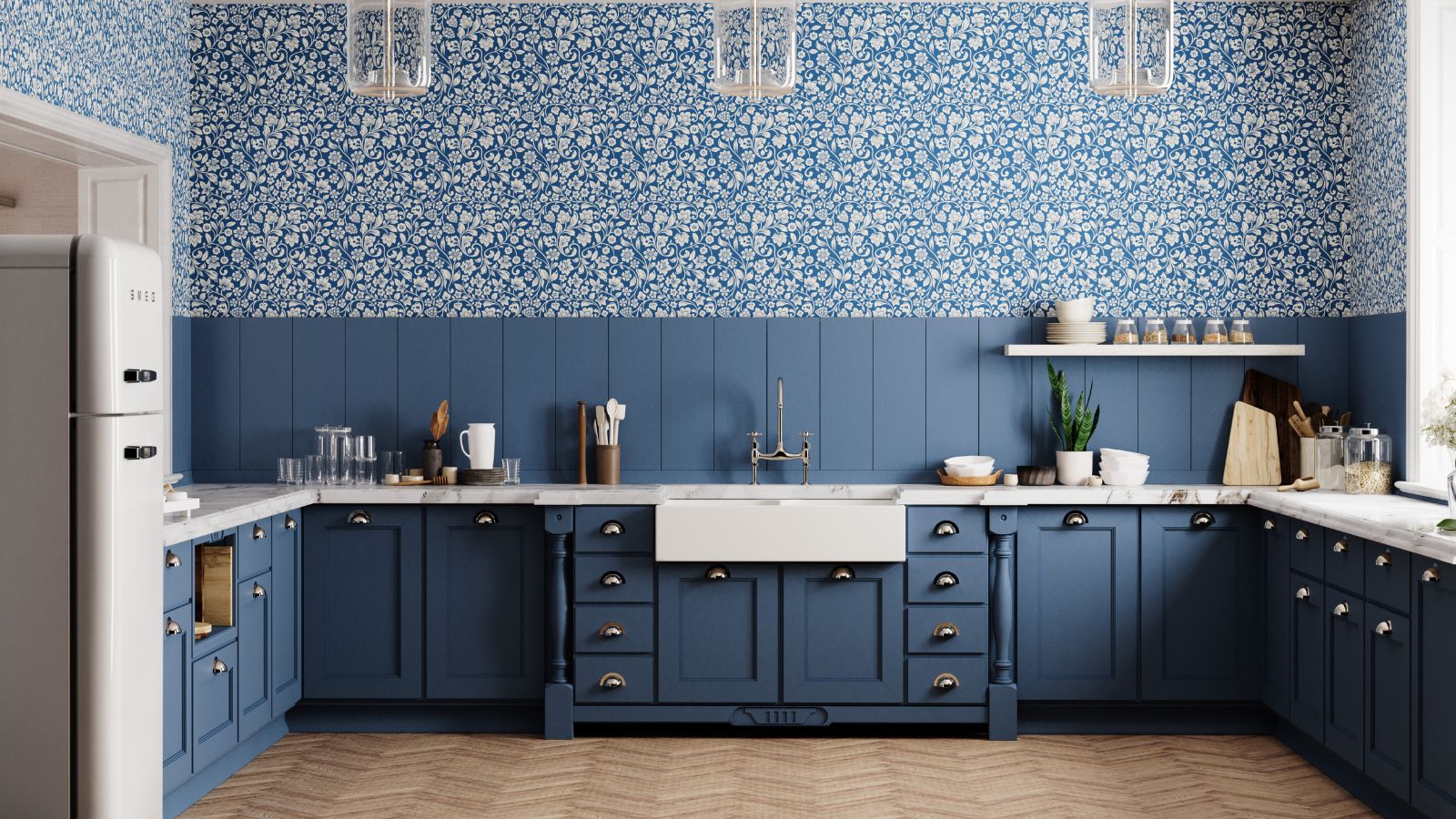 Do cleaning products expire? Professional cleaners warn time could make them ‘less effective, and in some cases, irritating to use’
Do cleaning products expire? Professional cleaners warn time could make them ‘less effective, and in some cases, irritating to use’For the best results, it pays to stay on top of the timeline of your cleaning products
By Chiana Dickson Published
-
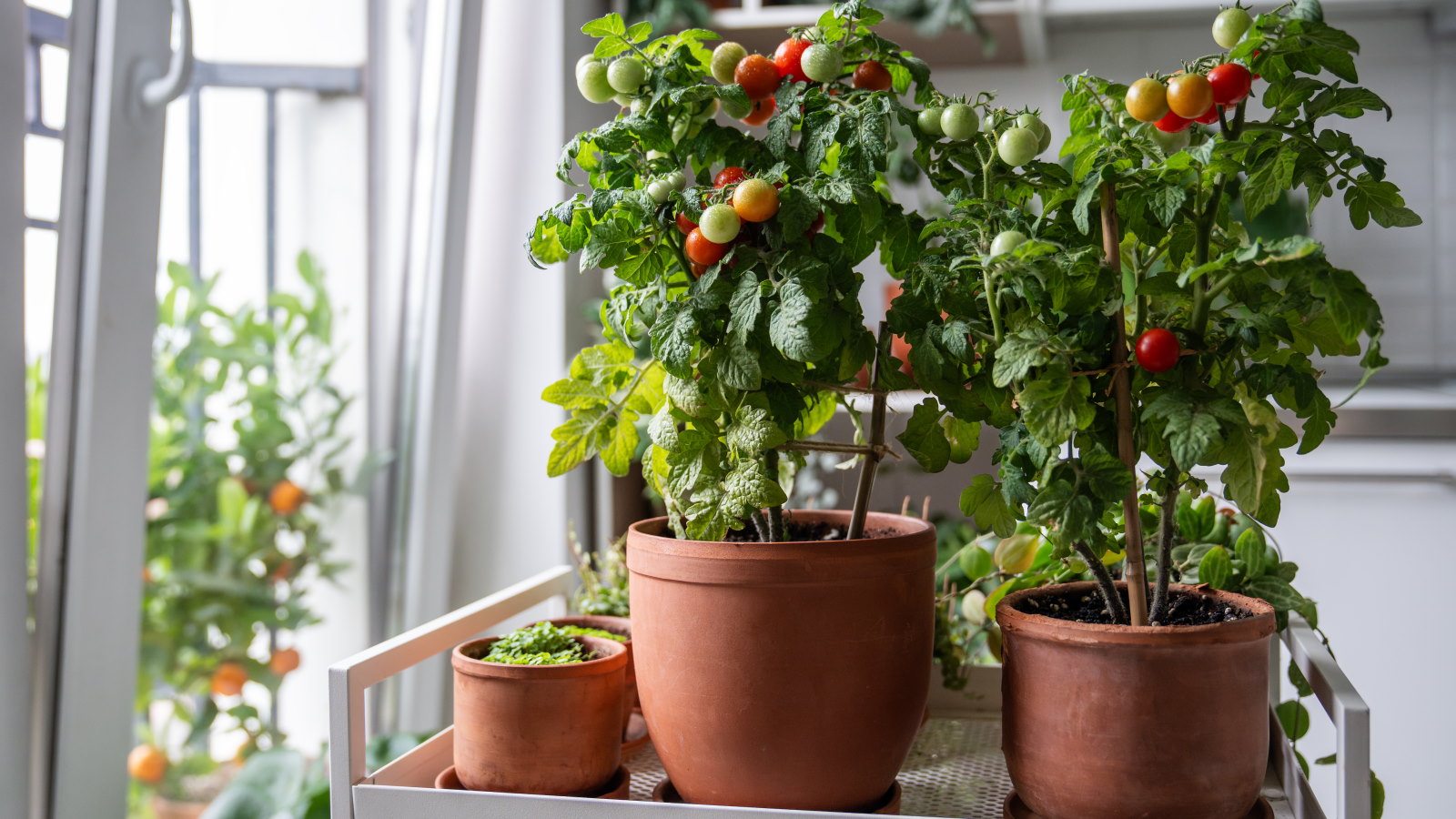 7 of the best tomatoes for growing in pots - expert growers pick their top varieties ideal for large harvests from containers
7 of the best tomatoes for growing in pots - expert growers pick their top varieties ideal for large harvests from containersYou can enjoy bumper homegrown harvests in small spaces
By Drew Swainston Published
-
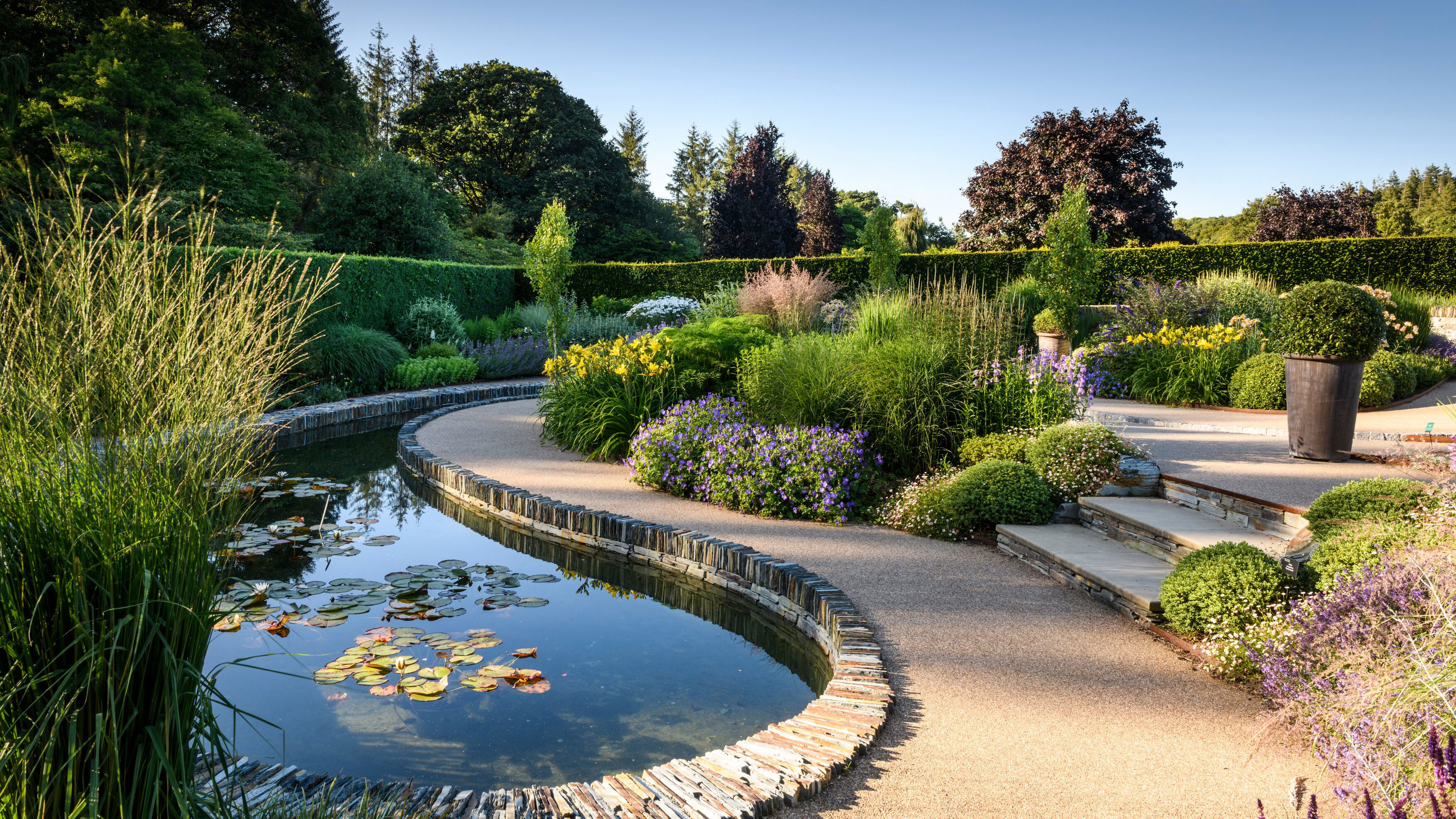 Water garden ideas – 9 ways to introduce soothing water to your outdoor space
Water garden ideas – 9 ways to introduce soothing water to your outdoor spaceFrom cascading fountains to wildlife ponds, there are plenty of ways to create a tranquil water garden
By Leigh Clapp Published
-
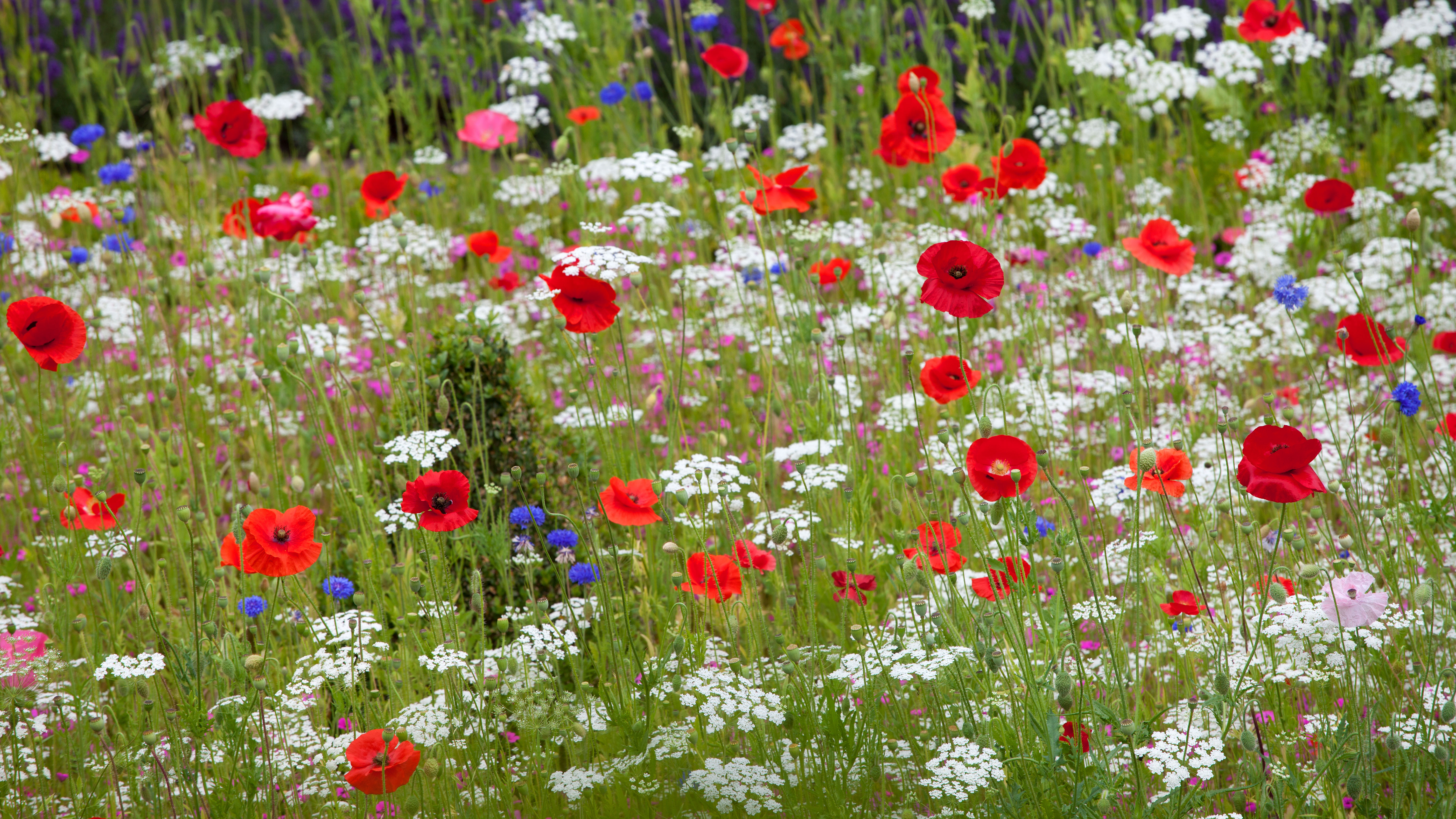 How to grow poppies
How to grow poppiesFind out how to grow poppies to enjoy the beauty of these brightly colored tissue paper-like blooms
By Leigh Clapp Published
-
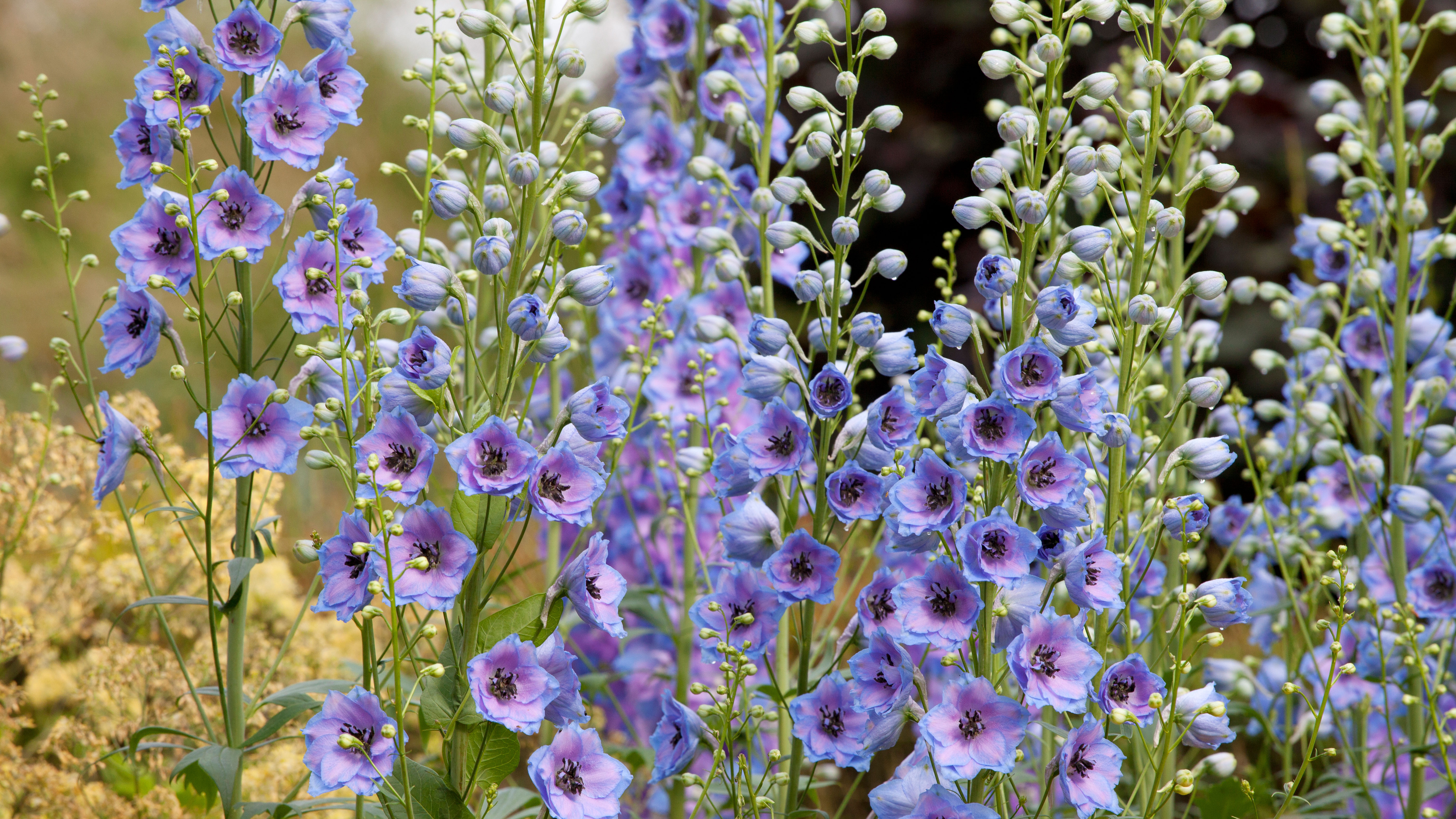 How to grow delphiniums from seed
How to grow delphiniums from seedFind out how to grow delphiniums from seed and enjoy these colorful cottage garden favorites filling beds and borders
By Leigh Clapp Published
-
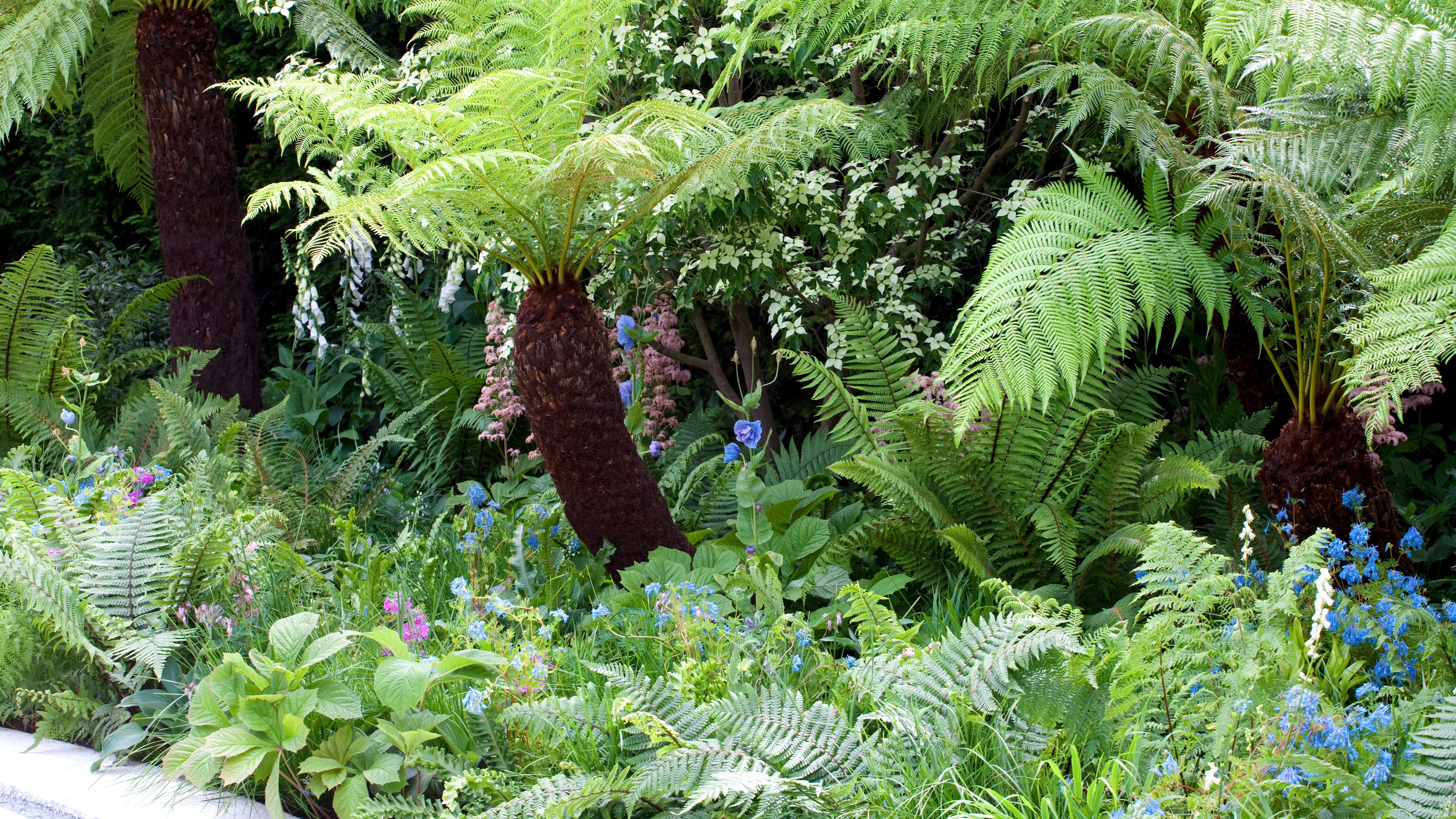 How to grow ferns – when and how to plant and care for them
How to grow ferns – when and how to plant and care for themLearn how to grow ferns to enjoy the texture and form of these versatile plants in many areas of your garden
By Leigh Clapp Published
-
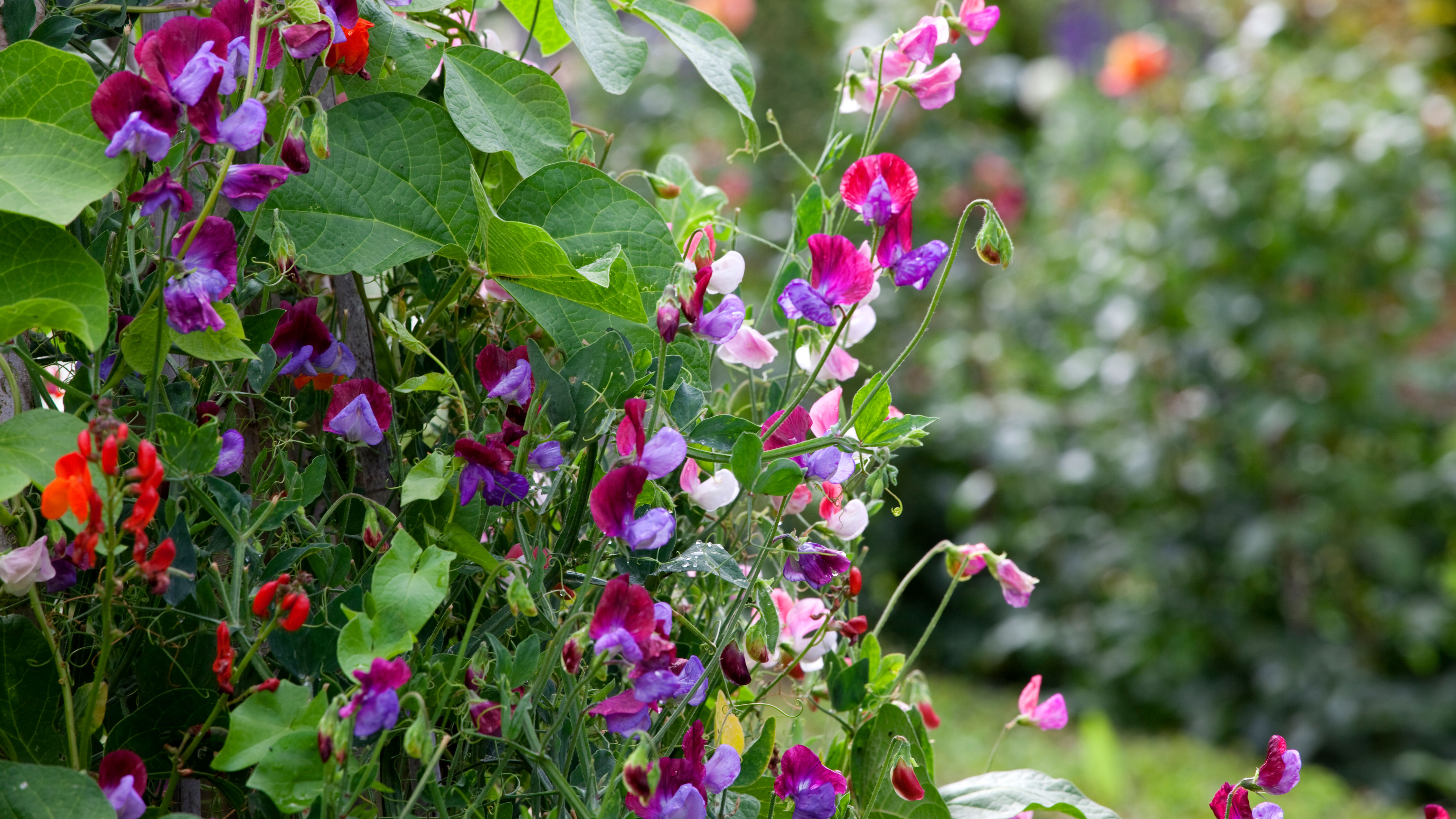 How to grow sweet peas from seed – in borders and pots
How to grow sweet peas from seed – in borders and potsFind out how to grow sweet peas and where to enjoy their wonderful color, ruffled blooms and sweet fragrance in your garden
By Pippa Blenkinsop Published
-
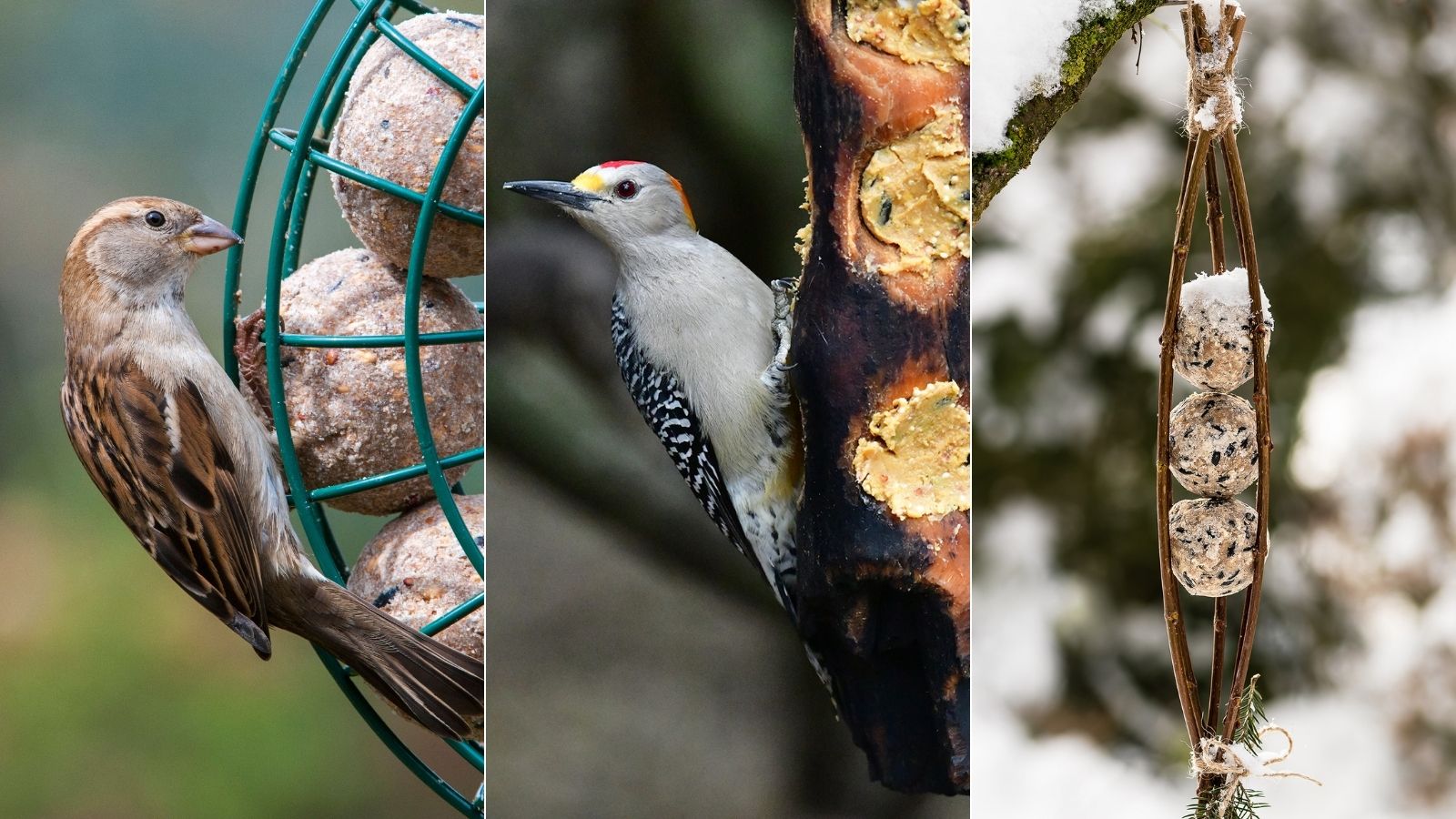 How to make fat balls for birds – easy steps feed our feathered friends
How to make fat balls for birds – easy steps feed our feathered friendsLearn how to make fat balls for birds to ensure their wellbeing throughout the winter
By Holly Reaney Published
-
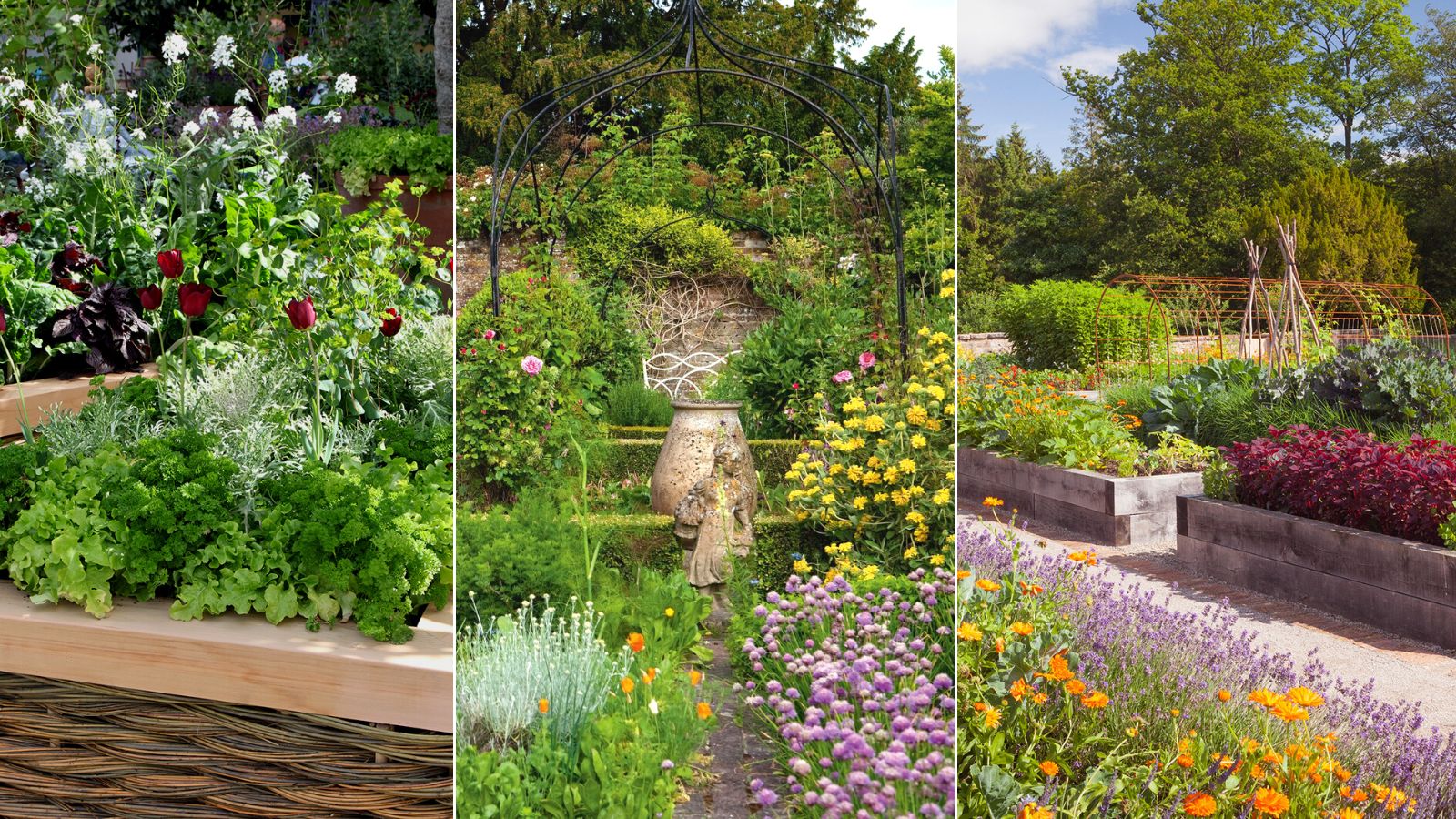 Planning a kitchen garden – from layouts to picking the best crops
Planning a kitchen garden – from layouts to picking the best cropsPlanning a kitchen garden is easy with this expert advice – whether yours is in beds, borders or a dedicated patch – you're guaranteed success
By Leigh Clapp Published
-
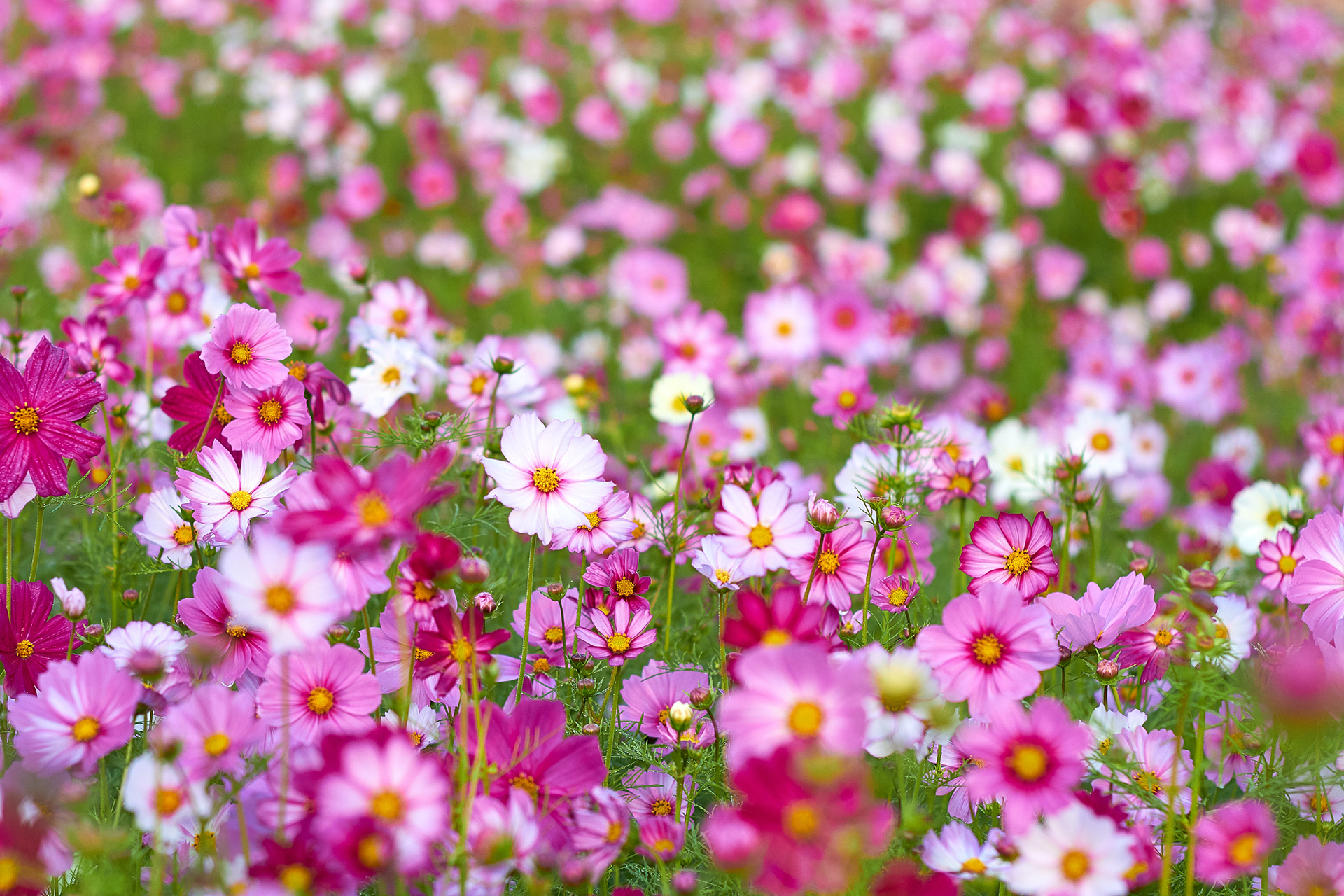 How to grow cosmos – expert tips on when and where to plant these flowers
How to grow cosmos – expert tips on when and where to plant these flowersLearn how to grow cosmos to add bright color in your garden from summer through to fall with their beautiful blooms
By Leigh Clapp Published